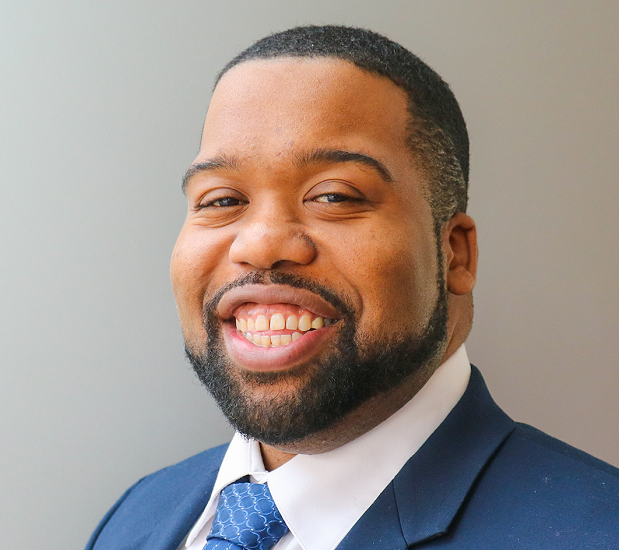Office Hours: Psychology Faculty and Neuroscientist Shawn Bates

To some, psychology and neuroscience seem like two very different disciplines. For Shawn Bates, the jump from studying psychology as an undergraduate and graduate student to pursuing neuroscience as a doctoral student was nothing short of natural. Driven by the belief that you can’t study behavior without wondering what’s happening inside the brain to produce particular behaviors, he learned that the multifaceted nature of psychology and the physiological science of the brain go hand in hand. Now, as the Psychology Department’s newest faculty member, he’s found another natural partnership: teaching at the college level allows him to mentor curious minds while continuing his journey into the mysterious crevices of the brain—including his own.
Bates Fact #1
His favorite class to teach is “Neuropsychology” but “Biological Psychology” is a close second.
What are your particular areas of interest in neuroscience?
My particular interest is in understanding more about environmental factors that can contribute to adolescent substance use. Two specific factors that interest me are stress and social environment. I am particularly interested in those areas because of a family history of substance use that I think stems from both stress and specific social situations. There is also so much to learn about drug use, especially during the specific developmental stage of adolescence. We know that social environments can both contribute to drug use and help someone abstain from it—but we don’t really know what’s happening in the brain. It’s also so much fun to ask these questions and look for the answers!
Bates Fact #2
He often uses mindful meditation as a brain exercise.
In your Twitter bio, you mention being an “imposter syndrome victim.” Can you elaborate on what that means for you?
Oh man, I’ve felt imposter syndrome for as long as I can remember, but this really kicked in when I started graduate school. I just felt like everyone was better than me, and that I didn’t belong. This is common for people in minoritized folks (underrepresented minorities, women, etc.) in majority spaces. Talking to people who had that same issue helped me work through it. By “work through it,” I don’t mean I’m over it, it just means that it helped me persevere through the issue while still having that small voice in my head. I hope that I can help the people I teach and mentor to use this voice to their advantage. I feel like the imposter syndrome in me pushed me to grow in ways I never ever thought I could. So, I encourage everyone to use theirs to their advantage too!
Bates Fact #3
His teaching style is 100% relaxed despite telling himself to “button up a bit.”
You also rock the hashtags #BlackandSTEM and #diversityinSTEM. In non-virtual spaces, do you actively advocate for more diversity in STEM, such as in the classroom or during mentorships?
I certainly do advocate for more diversity in STEM. It is a responsibility that I welcome wholeheartedly. There are so many studies showing that diversity in STEM is not only beneficial for underrepresented people, but also for the STEM enterprise at large, as diversity only helps to create better, more creative solutions. I encourage this by working with underrepresented minority students to help them see that we need them in STEM, and also that there are so many STEM careers. I tie in my passion for mentoring with my desire to enhance representation in STEM by actively seeking out students from backgrounds that are underrepresented in STEM and also by helping them to make connections with others who can support them and help them reach their goals. I’m also on various committees that are seeking to create a more inclusive environment for underrepresented students and faculty in STEM.
Bates Fact #4
His childhood heroes were the Teenage Mutant Ninja Turtles and his mom, who first sparked his interest in science.
How did you get into mentoring?
Mentoring is one of the most exciting parts of my job! I got into mentoring as an undergraduate at California State University, Long Beach. I was a part of a program called the Learning Alliance, where I had the opportunity to be a peer mentor for freshmen. I was a part of a team that taught a freshman seminar, and also has one-on-one mentees, some of which I am still in touch with. That was such an incredible experience that I take every opportunity to mentor. As a graduate student, and as a postdoctoral fellow, I mentored undergraduate students in the lab and taught them laboratory techniques. Also as a postdoc, I was co-chair of a committee that formed mentoring circles for underrepresented STEM undergraduates, graduate students, and postdocs. Now, I still mentor students often, including research assistants.
Bates Fact #5
If he could have one superpower it would be telepathy or empathy.
Is there anything you’ve learned through your studies or research that you found particularly interesting or surprising about the brain or the mind?
That’s a tough question! There’s so much that’s unknown about the brain, so I’m always learning something new. For example, I just read a story about why music sparks nostalgia and why music from our adolescence will always be the best music for us. From my own research though, one really cool thing that I’ve found is that the social environment affects the response to [drug use] in adolescents. So, an adolescent’s decision to use drugs because their friends do might be because they find the [act of taking the] drug [as part of a group] rewarding. [Their decision might not be] just because of peer pressure.
Shawn Bates holds a bachelor’s degree in psychology from California State University, Long Beach; a master’s degree in psychology from California State University, San Marcos; and a PhD in neuroscience from Texas A&M University. He was hired by the Chico State Department of Psychology in August 2020.


